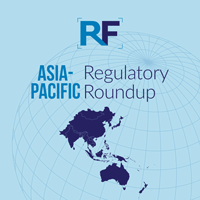Asia-Pacific Roundup: TGA asks drugmakers to mitigate cybersecurity weakness amid ‘active malicious exploitation’
 AsiaBiologics/ biosimilars/ vaccinesBiotechnologyDiagnostics/IVDsMedical DevicesOceaniaPharmaceuticalsProduct Lifecycle
AsiaBiologics/ biosimilars/ vaccinesBiotechnologyDiagnostics/IVDsMedical DevicesOceaniaPharmaceuticalsProduct Lifecycle AsiaBiologics/ biosimilars/ vaccinesBiotechnologyDiagnostics/IVDsMedical DevicesOceaniaPharmaceuticalsProduct Lifecycle
AsiaBiologics/ biosimilars/ vaccinesBiotechnologyDiagnostics/IVDsMedical DevicesOceaniaPharmaceuticalsProduct Lifecycle